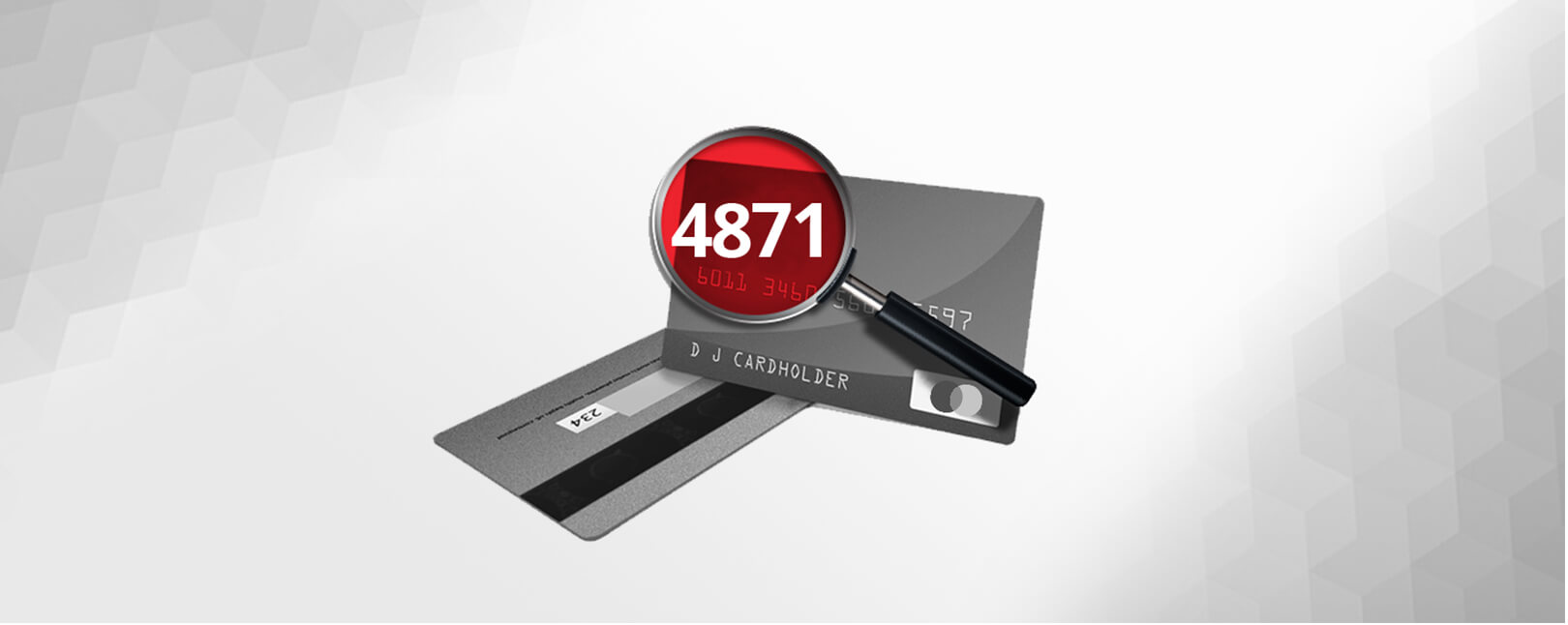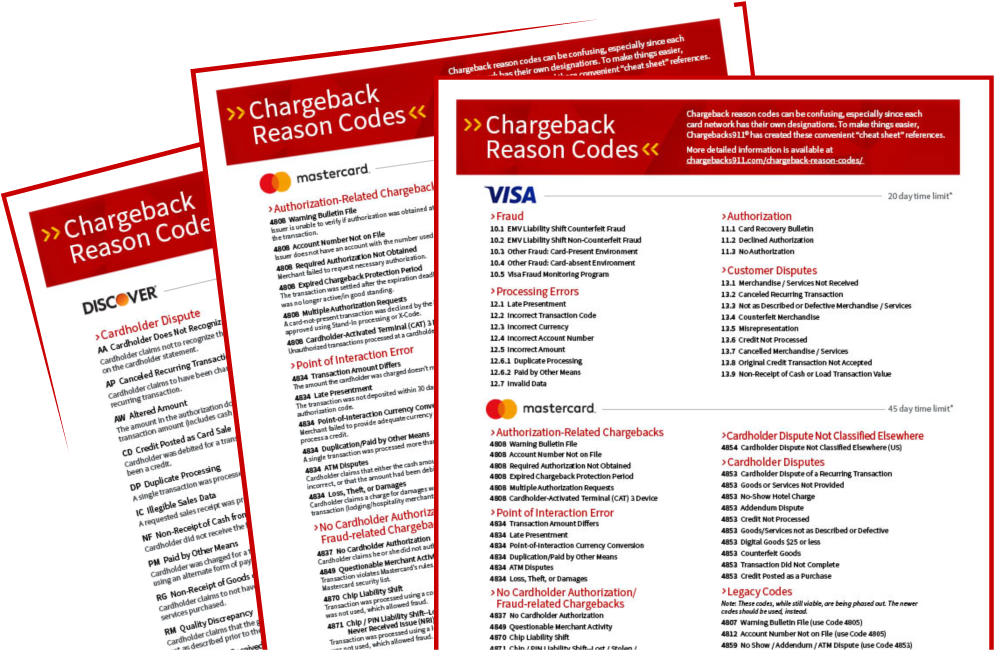Mastercard reason code 4871 Chip liability shift: Lost/Stolen/Never Received Issue (NRI Fraud)
Mastercard chargeback reason code 4871 is one of the numeric labels assigned by banks to customer disputes, indicating the given reason for the claim. We say the given reason because it may or may not reflect the true reason.
Under certain circumstances, Mastercard may allow consumers to reverse a payment card transaction by filing a chargeback. Chargebacks were designed to be a “last-resort” for disagreements that cannot be resolved with the merchant. However, they are more often used as a loophole to commit fraud.
Reason code 4871 falls under the broad category “No Cardholder Authorization,” which generally refers to fraud. Several reason codes fall under this heading; it is important to differentiate between chargebacks with reason code 4870 (Chip Liability Shift) vs. those with reason code 4871 (Chip Liability Shift Lost/Stolen/Never Received Issue).
Obviously, both involve a liability shift, which we will explain below. The difference lies in whether the cardholder used the card. With that in mind, let’s look at Mastercard reason code 4871: “Chip liability shift: Lost/Stolen/Never Received Issue (NRI Fraud).”
Should Merchants Worry About Reason Code 4871 Chargebacks?
Have chargeback questions? We have answers. Click to learn more.

What Is Chip Liability Shift?
Chargeback reason code 4871 has to do with whether or not the merchant in question has installed and is using terminals that can accept EMV or “chip” payment cards. If the merchant is not EMV-compliant, the liability for a fraudulent transaction shifts from the card issuer to the actual merchant.
To understand that better, let’s look at how these situations arose in the first place. In the earlier days of payment card usage, merchants were required to make a physical impression of the card being used. This practice waned when the card networks began including customer data on the card, coded into a magnetic strip.
While this worked well for a time, fraudsters soon figured out ways to copy the information and create counterfeit cards. That led to the introduction of new EMV chip cards, which are exponentially more secure. The data on a magnetic stripe never changes, whereas chip cards create a unique, dynamic code for every transaction.
Unfortunately, merchants had to upgrade all their card-reading equipment in order to accept the new type of card. The cost could be prohibitive; in many cases, merchants dragged their feet and resisted upgrading. The merchant was usually not liable if a purchase was made using a false or stolen card, so the consequences for not upgrading were minimal. That changed with the introduction of a chip liability shift chargeback.
What Is a Liability Shift Chargeback?
A cardholder who spots an unauthorized charge on an account has the right to claim fraud and file a chargeback with the bank. This occurs much less frequently, however, when chip cards are used. To encourage merchants to switch to EMV-compliant readers, the card networks created the chip liability shift. Now, if the bank can show that a fraudulent transaction would have been detected by a chip-reader, the burden of liability shifts to the merchant.
In other words, if a fraudulent transaction was made using a chip card, but the merchant could not (or did not) process the transaction with a terminal that could read the chip, the bank could claim that the merchant was responsible. The issuer still refunds the cardholder, but would then be entitled to compensation from the merchant.
There are two different scenarios where this could happen. Reason code 4871 chargebacks are used when customers report unauthorized transactions made using cards that are not in their possession. This could be because the card had been reported lost, stolen, or was simply never received. A fraudster in possession of that card made the transaction and, in order to avoid detection, made sure the card was swiped, not dipped.
Because of the technology involved, EMV-compliant readers would likely detect a potential fraud issue when the chip was read. If the merchant does not have EMV card readers installed, however, or allows the purchaser to swipe instead of insisting the card be dipped, the fraud would not be caught…and the merchant would be held liable.
Obviously, if a business regularly receives legitimate chargebacks because an EMV reader was not used, there’s a problem that needs to be addressed by the merchant. This is especially true in cases of criminal fraud.
As we alluded to earlier, though, a false reason code may be used to mask a cardholder’s attempt at fraud. Merchants should challenge invalid 4871 chargebacks through the representment process if all of the following apply:
- The disputed transaction was authorized.
- The card had not been reported lost or stolen at the time of the transaction.
- The card used was not an EMV chip card.
Chip Liability Shift Disputes: Conditions and Prevention
Issuers have a limited timeframe to file chargebacks claiming that the liability shift should apply. Disputes must be filed within 120 calendar days of the transaction processing date.
There is good news, though. Because these chargebacks are largely the result of merchant actions, they are 100% preventable by adhering to basic best practices:
- Upgrade all card-readers to be EMV compliant.
- Always obtain secondary verification (token, PIN, signature, biometrics, etc.).
- Insist that all chip cards be tapped or inserted, not swiped.
Vigilance and training are key here. Merchants must be certain that staff members understand and practice these requirements.
Chargeback Prevention: A Wider View
While merchants can take many steps to help prevent legitimate claims, fraudulent chargebacks are another matter: friendly fraud is post-transactional in nature, meaning there’s no sure way to identify it beforehand. Merchants can do everything “right” yet still have a customer dispute filed against them.
So while it’s generally more efficient to take a proactive stance when it comes to chargeback management, a truly effective strategy must encompass both prevention and disputing cases of friendly fraud.
Chargebacks911® can help your business manage all aspects of chargeback reason codes, with proprietary technologies and experience-based expertise. Contact us today for a free ROI analysis to learn how much more you could save.









